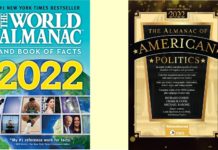|
This book is probably the most academic I have reviewed to date.
That is, much of the book Wisdom, Intelligence, and Creativity Synthesized by Robert J. Sternberg (Cambridge University Press, 2003) consists of “a review of the literature” – a tabulation of the research and findings of hundreds of academic researchers on the topics of wisdom, intelligence, and creativity. This book, by one of the leading authorities on creativity, contains a fair amount of psychologists’ jargon and philosophies. So it isn’t everyone’s cup of tea.
On the other hand, it is full of interesting ideas, a few good charts, and plentiful references for those who want to know more. The book is not that dense – at least easier to read than a lot of the social science books I have – and it isn’t that long.
If you are interested in such topics – and everyone should be – then you will be fascinated by Sternberg’s innovative take on intelligence, creativity, and wisdom.
He believes that our present conceptions of these ideas is off the mark, and suggests new ways of thinking about them. I was especially interested in his definitions and ideas about wisdom, which I view as a pretty vague concept. At least before I found this book.
If you read this book, you’ll learn a great deal about the current state of research on these factors, on the ways we test for them, and about some of the more innovative tests being used. For the right reader, this book will open new gateways and lead your head in new directions.
|
|












I like “Working Emotional Intelligence” by Daniel Goleman. My favorite quote within that book is:
“There is a politics of empathy: Those with little power are typically expected to sense the feelings of those who hold power, while those in power feel less obligation to be sensitive in return. In other words, the studied lack of empathy is a way powerholders can tacitly assert their authority.”
Comments are closed.